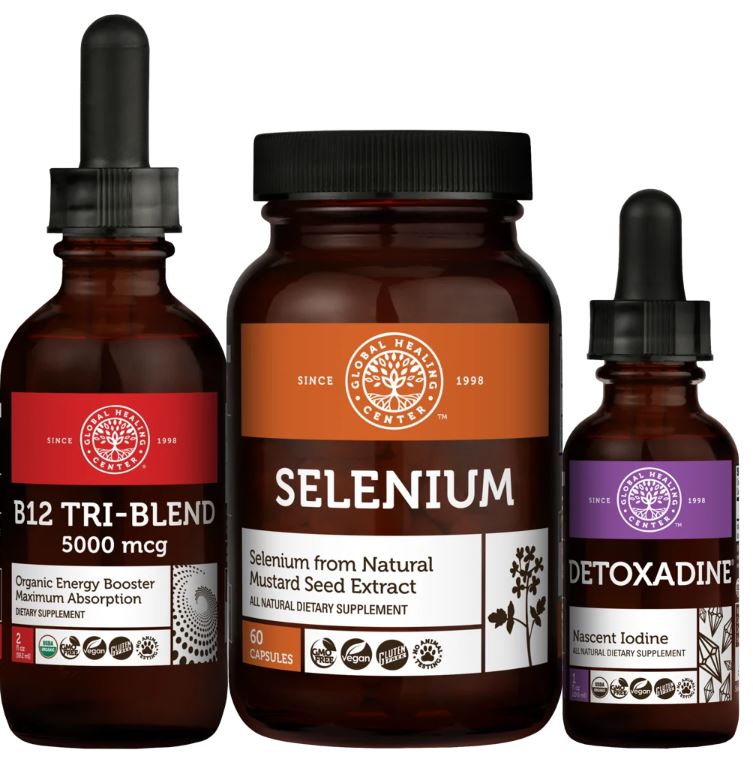How well do you know your thyroid? Like it or not, if the answer is not that well, you’re probably unaware of what happens when it’s not working properly and how that can make you ill.
A small gland that, shaped like a butterfly, is to be found at the front of the neck (near the Adam’s apple), the thyroid is a significant part of the endocrine system; the system in the human body that’s made up of different glands. For its part, the thyroid is responsible for producing and secreting the T4 and T3 hormones, which together work to regulate growth, development and metabolism.
To be more specific, T4 and T3 work by informing the body’s cells when to convert oxygen and calories into energy. Of all the hormones awash in your body produced by the thyroid, 80 percent of them are T4, so while there’s far less T3 about, it’s actually a more powerful form of the thyroid hormone.
So much for T4 and T3; yet neither can perform their critical work unless they’re created and secreted by the thyroid, in the first place. And, for that to happen, the gland requires the body to consume the right nutrients, such as the all-important chemical that’s iodine – which is why a good, healthy, nutritious diet is important and perhaps, too, thyroid-health-focused supplementation.
How your thyroid can be disrupted
When, like the endocrine system’s other glands (and, indeed, other parts of the body), the thyroid isn’t aided in by you consuming nutrition and vitamins, its work is most susceptible to disruption. In particular, the thyroid’s efforts to regulate processes like growth, development and reproduction get interfered with because its hormones’ work as chemical messengers in the body is disrupted – often due to the sabotaging efforts of chemicals referred to as endocrine disruptors.
And, don’t doubt it, endocrine disruptors are very bad news. The likes of dioxins, pesticides and PCBs, they’re past-masters at blocking, altering or even mimicking the production of hormones, causing hormone secretion levels either to spike or plummet and, therefore, potentially resulting in on a roster of development, reproductive, neurological and immune disorders, including birth defects and possibly even cancer.
Unfortunately, you can consume endocrine disruptors from practically anywhere; they’re ubiquitous in all the environments of our modern world. Because, as mentioned, they tend to come in the form of dioxins, PCBs and pesticides, these chemicals can be traced to a plethora of common products we use and keep in our homes, such as cosmetics, food containers, household chemicals, plastics and plastic bottles.
And yet, although it’s difficult to manage your environment so it’s satisfyingly free of endocrine disruptors, there’s no question that inadequate nutrition can also result in thyroid concerns – and that’s definitely something you can successfully address through good diet and/ or thyroid supplements.
Thyroid disorders to be aware of
There are several different disorders associated with the thyroid:
- Hypothyroidism – occurs when an underactive thyroid isn’t making sufficient amounts of T4 and T3; symptoms can include brittle hair and fingernails; constipation; depression; fatigue and weakness; hair loss; heavy or irregular menstrual cycles; hoarseness; increased sensitivity to cold; joint and muscle pain; puffy face, hands and feet; slow heart rate; weight gain
- Hyperthyroidism – not to be confused with the aforementioned hypothyroidism, especially as this condition is its opposite, it’s effectively an overactive thyroid gland; symptoms can include frequent bowel movements and diarrhoea; goitre (see below); hair loss; heart palpitations; high blood pressure; increased appetite; irregular menstrual cycles; reduced concentration; nervousness; sweating and increased sensitivity to heat; protruding, itchy eyes; restlessness and insomnia; weight loss
- Goitre – an enlargement of the thyroid gland, often leading to swelling in the neck; goitres often occur due to iodine deficiency, the thyroid increasing in size to try and capture as much iodine as it can
- Graves’ disease – an autoimmune disorder that forces the body’s immune system to mistakenly identify the thyroid as an alien entity, attacking it with antibodies; most common in women over 20 years-old and a major cause of hyperthyroidism
- Thyroiditis – an inflammation of the thyroid, often occurring because of a viral infection, trauma, immune disorder or a drug-related cause; usually painful
- Thyroid cancer – the endocrine system’s most likely-to-develop cancer and rates of thyroid cancer are growing; fortunately, though, cases tend to develop slowly, so are often detected early and can be treated, ensuring survival rates are good.

Thyroid health supplements
So, to help a thyroid stay in tip-top condition is surely in everyone’s best interests. In which case, we’re only too happy, here at The Finchley Clinic, to introduce you to the Thyroid Health Kit, a carefully crafted 60-day plan to naturally enhance and help take care of your thyroid function, which features three critical nutrient components and – for added peace of mind – comes complete with a one-year-money-back guarantee.
To ensure it can help deliver more energy, increased sharpness and less ‘brain fog’, improved sleep and a more balanced metabolism, the Thyroid Health Kit includes:
- B12 Tri-Blend – a blend of the three most bioactive forms of Vitamin B12; people who suffer with an underactive thyroid may well also be B12-deficient
- Selenium – required by the thyroid to generate and secrete T4 and T3, selenium is also needed by the body to produce antioxidant enzymes for thyroid protection
- Detoxadine – an organic, nascent form of iodine that’s great for nourishing the thyroid and encouraging a normal hormone balance in the body.
